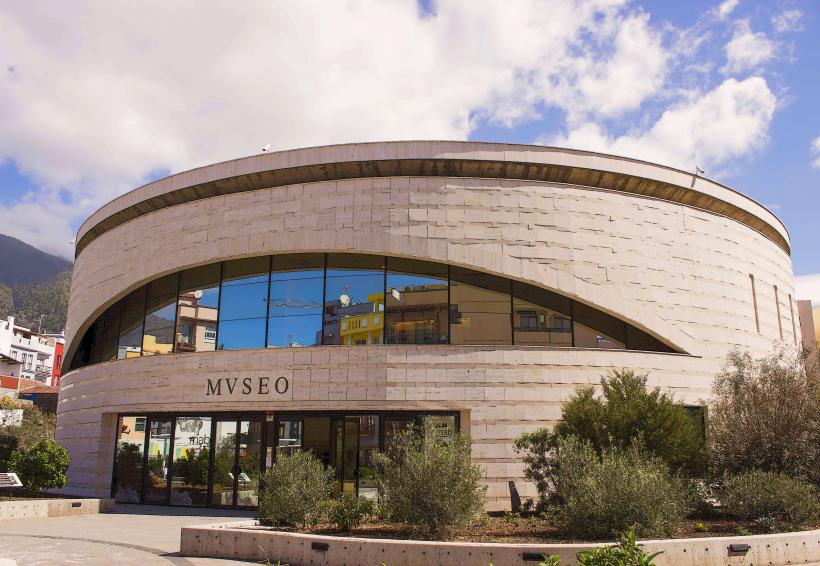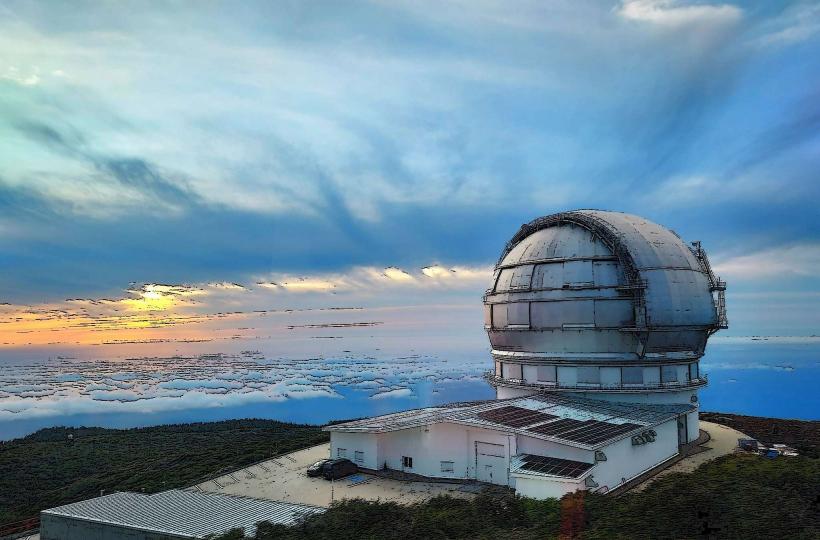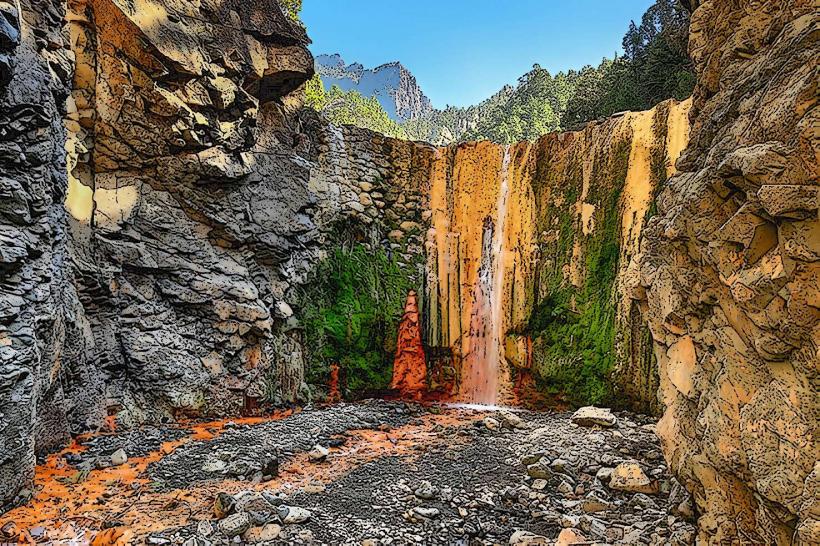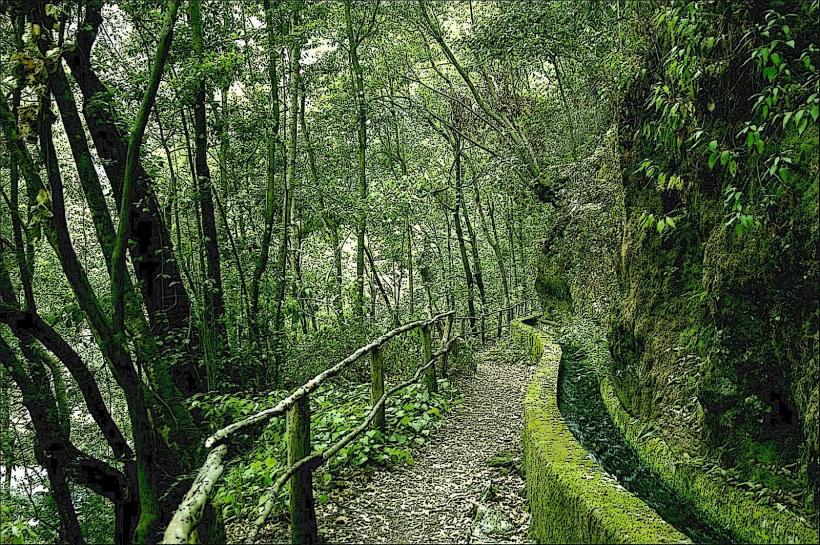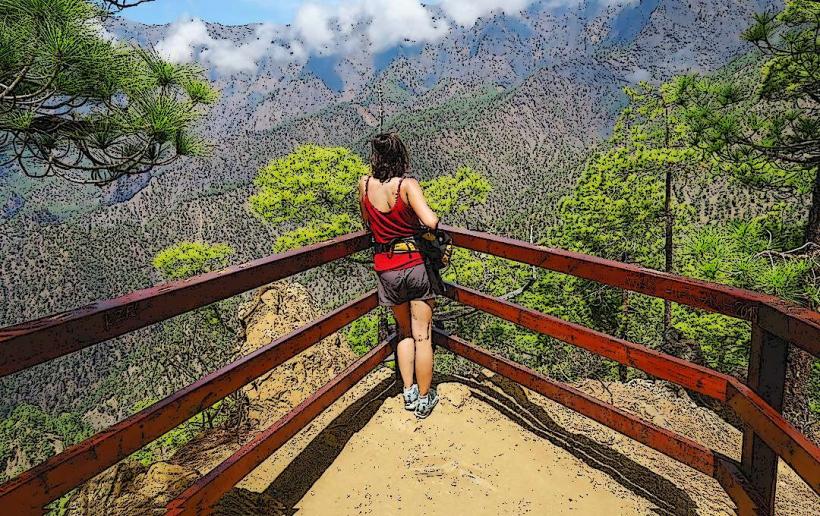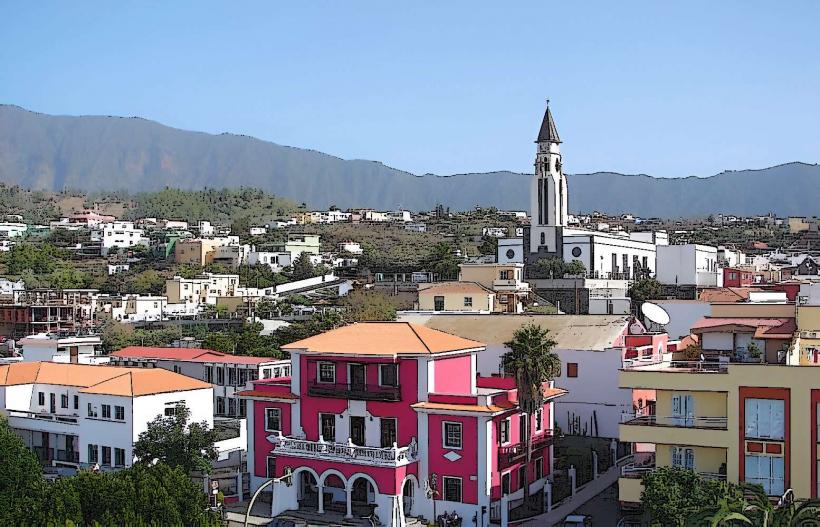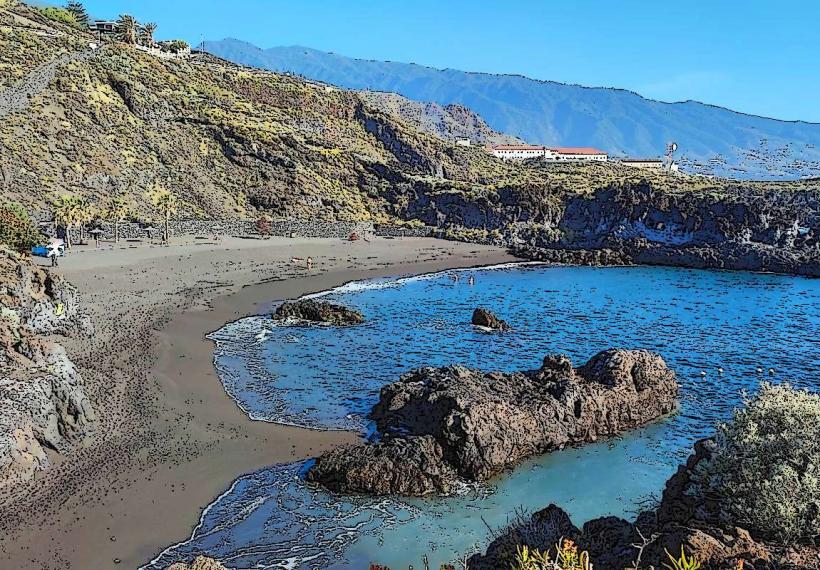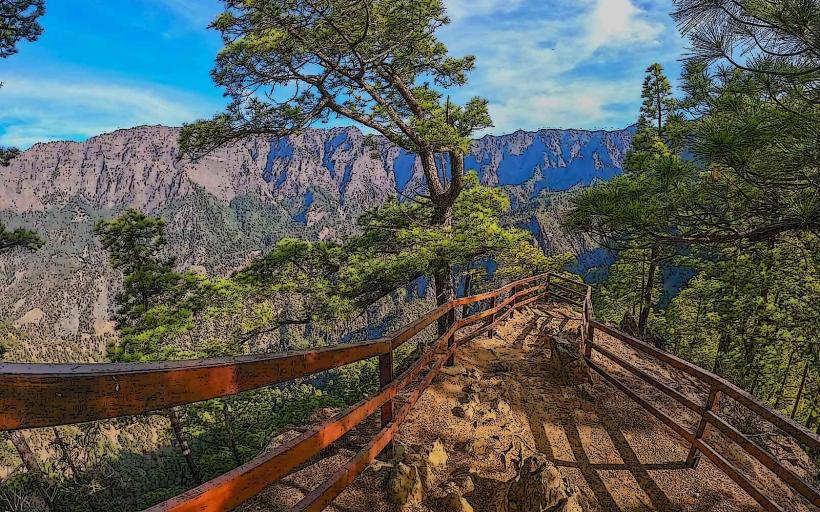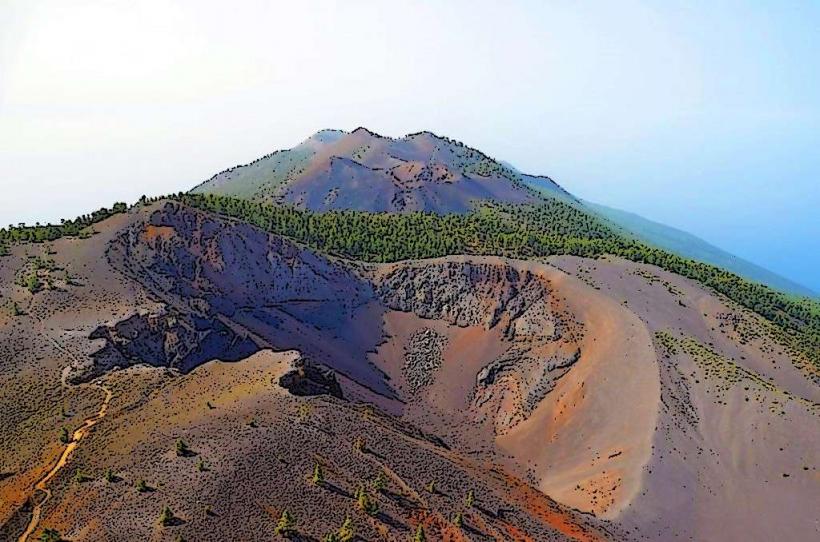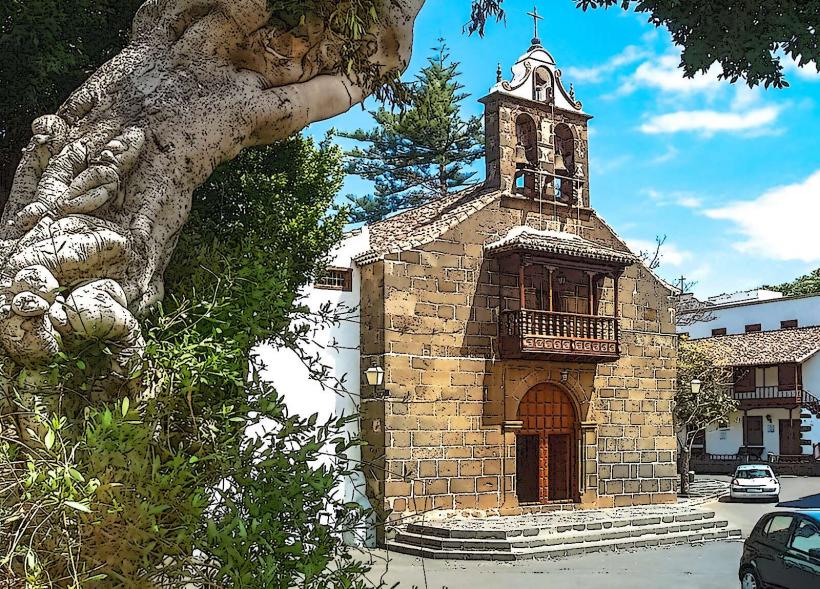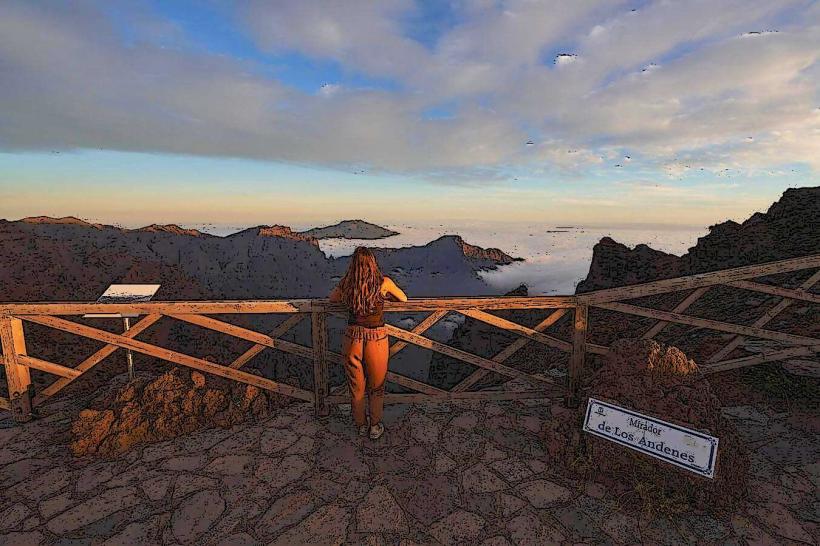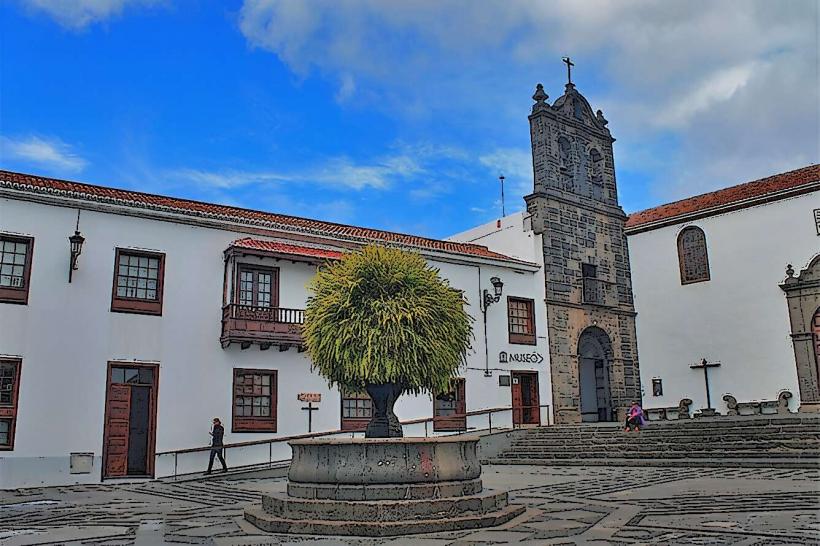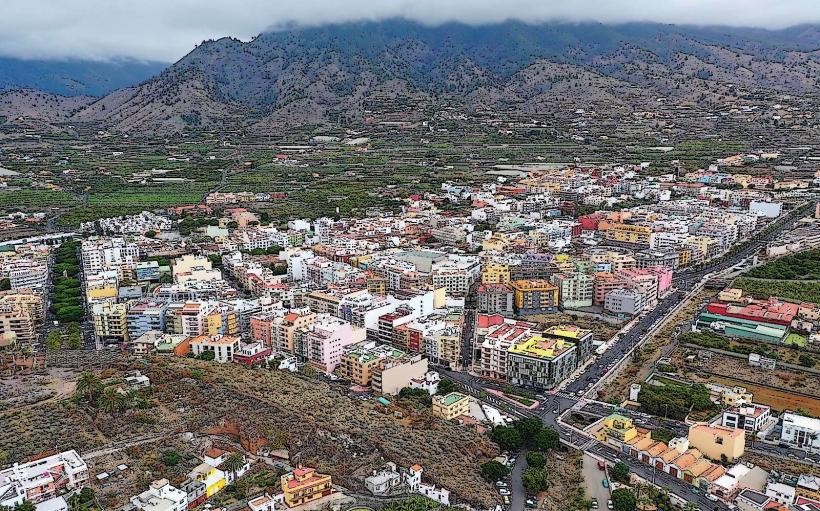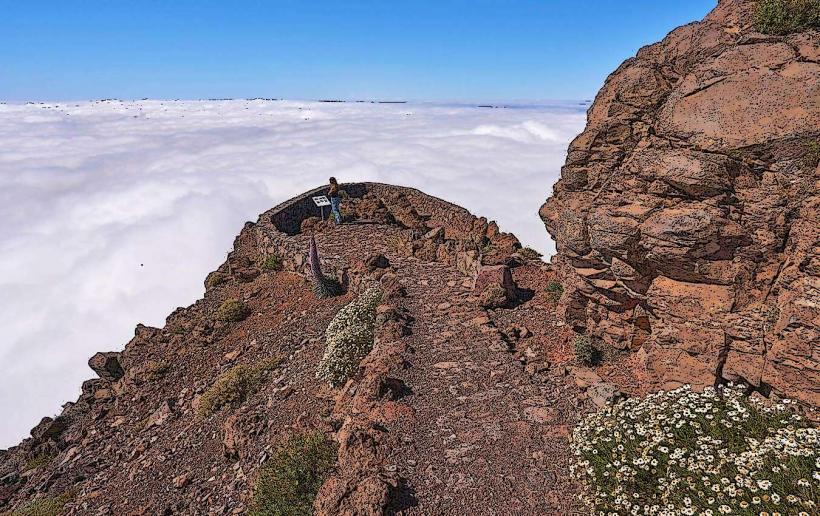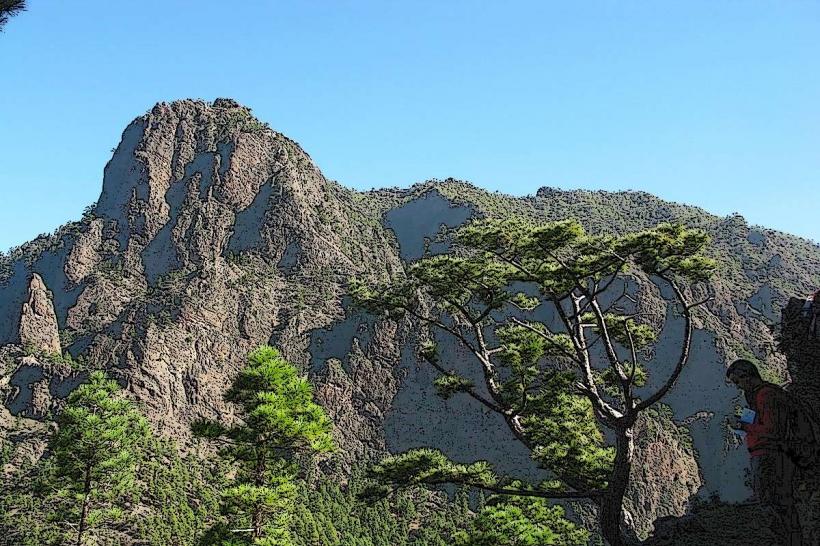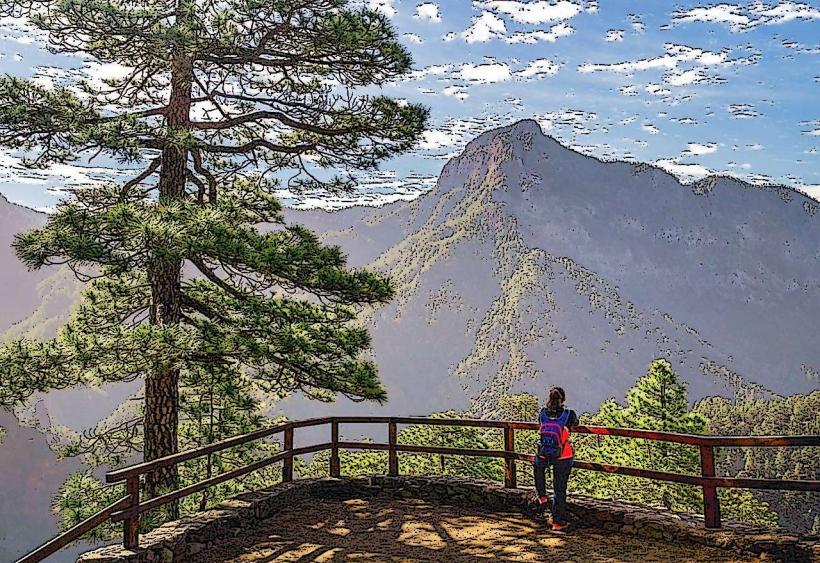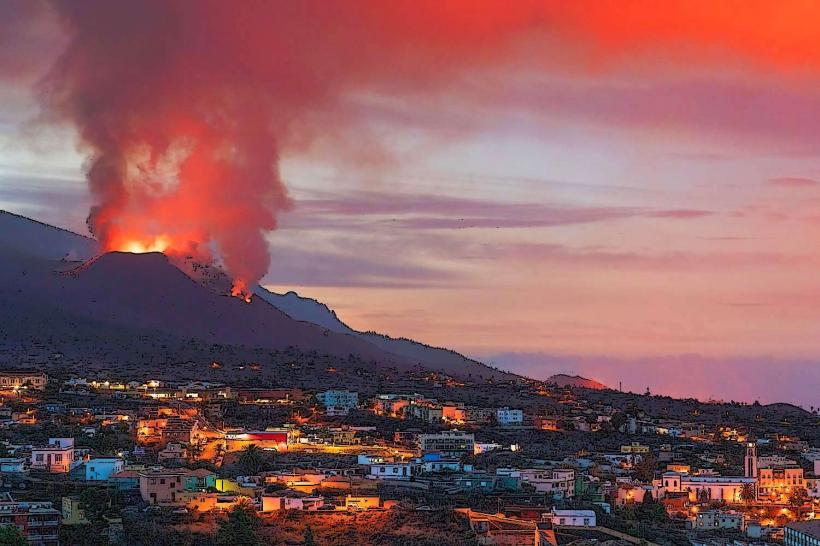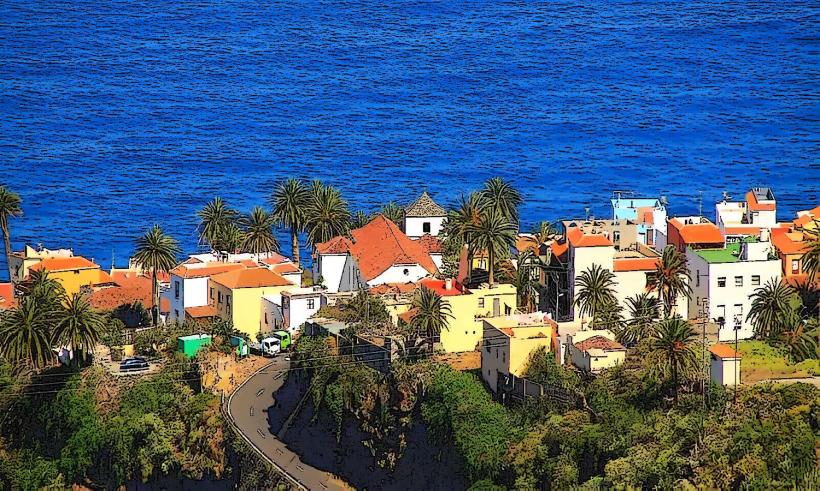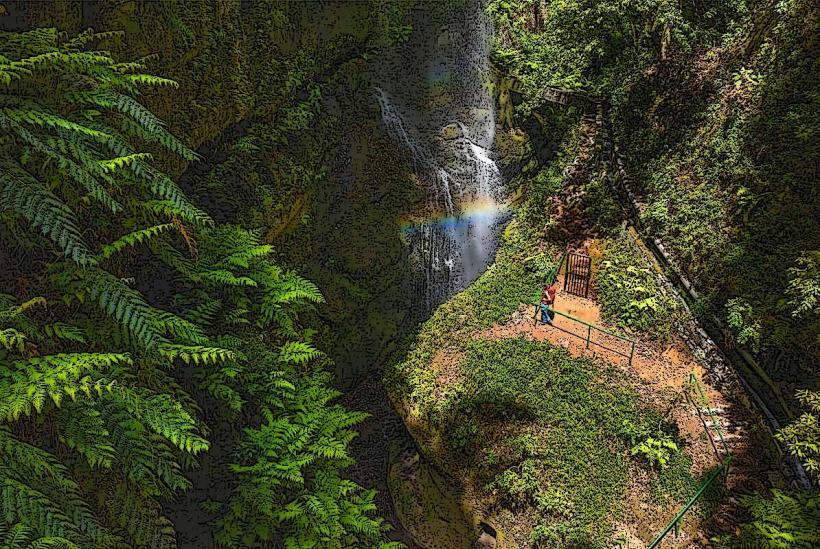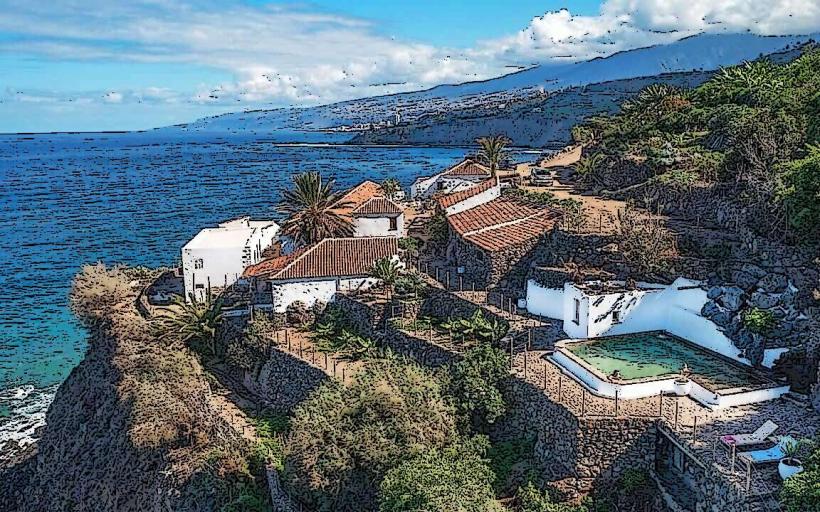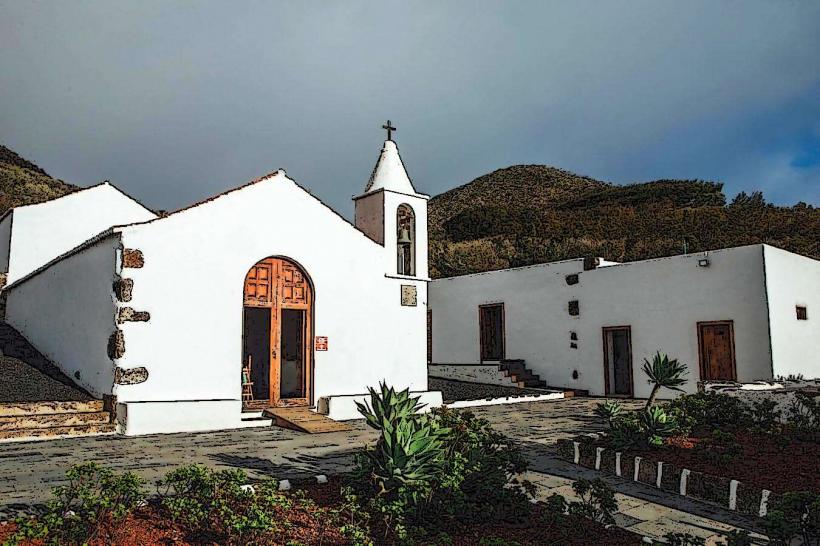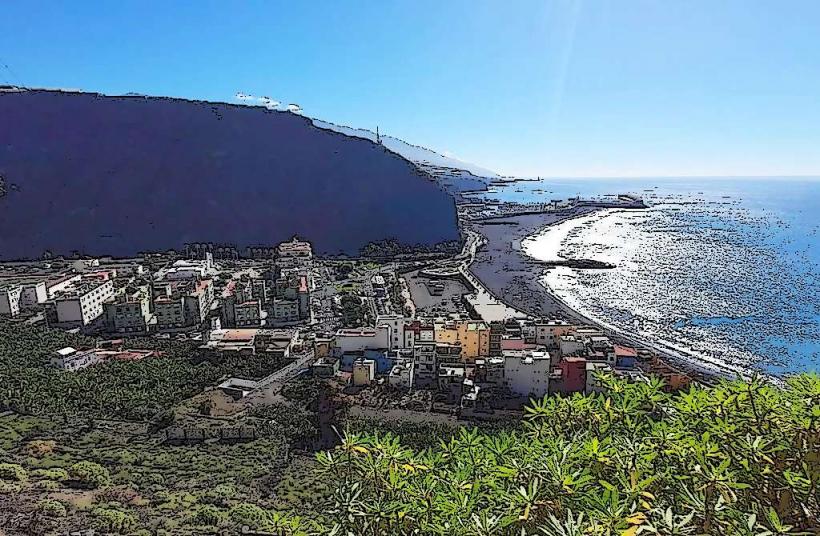Information
Landmark: Santa Cruz de La PalmaCity: La Palma
Country: Canary Islands
Continent: Europe
Santa Cruz de La Palma is the capital of the island of La Palma in the Canary Islands, Spain. Located on the eastern coast of the island, it is a charming town that combines historical significance, natural beauty, and a vibrant cultural scene. With a population of around 17,000 people, it is one of the smaller capitals in the Canary Islands but stands out for its preserved historical architecture, its picturesque setting, and its role as a gateway to exploring the island.
History and Significance
Santa Cruz de La Palma has a rich history that dates back to its founding in the 15th century. The town developed as a port due to its strategic location along the trade routes between Europe and the Americas, particularly during the Spanish colonial period. Over the centuries, it grew into an important hub for trade, particularly in sugar and other agricultural products.
The town has retained much of its historical charm, with cobbled streets, colonial-style houses, and ornate buildings that reflect its cultural and architectural past. Santa Cruz was historically an administrative and religious center for the island, and many of the town’s buildings still serve as monuments to its role in the history of the Canary Islands.
Key Attractions and Landmarks
Plaza de España:
- This central square is the heart of the town, surrounded by historic buildings, including the City Hall (Ayuntamiento) and the Church of El Salvador (Iglesia del Salvador). It’s a lively area with cafes, shops, and a pleasant atmosphere where visitors can relax and soak in the local culture.
Iglesia del Salvador (Church of El Salvador):
- Built in the early 17th century, this church is one of the most important religious sites in Santa Cruz de La Palma. It features a beautiful wooden interior, particularly its intricately carved altar. The church is a fine example of local Baroque architecture.
Castillo de Santa Catalina (Santa Catalina Castle):
- This 16th-century castle was originally built to protect the town from pirate attacks and is one of the town's iconic landmarks. Today, it houses a small museum and offers great views over the harbor and the sea.
Museo Naval (Naval Museum):
- Located in a historic building, the Naval Museum highlights the maritime history of Santa Cruz and La Palma. It features exhibits on the island’s role in trade and exploration, particularly during the colonial period, and displays artifacts related to naval history.
La Palma Archaeological Museum:
- The museum is dedicated to the indigenous Benahoaritas people of La Palma and showcases artifacts related to the island's early history. It also includes exhibits on the island’s geological history and the impact of European colonization.
Calle O'Daly:
- One of the main streets in the historic center of Santa Cruz, Calle O'Daly is lined with beautiful colonial houses, many of which are now homes to shops, galleries, and restaurants. The street is perfect for a leisurely stroll through the town’s heritage.
La Cumbrecita:
- While technically located a little outside of Santa Cruz, this is one of the most popular hiking areas accessible from the town. It offers breathtaking views of the Caldera de Taburiente National Park and provides excellent opportunities for hiking and outdoor activities.
Mirador de la Cumbrecita:
- A scenic viewpoint offering panoramic views of the island's rugged terrain and caldera. It’s a great spot for nature lovers and photographers to capture the island's stunning landscapes.
El Puerto de Santa Cruz de La Palma (Santa Cruz de La Palma Port):
- The port is an integral part of the town's economy and history, acting as the main point of entry and exit for goods and passengers. The port area is a pleasant place to walk, with beautiful views of the harbor and the surrounding mountains.
Natural Beauty and Surroundings
Santa Cruz de La Palma is surrounded by lush landscapes, steep cliffs, and volcanic terrain that are characteristic of the island. The Laurel forests and mountainous terrain around the town offer excellent opportunities for hiking and outdoor adventures. Los Tilos Forest, Caldera de Taburiente National Park, and the Roque de los Muchachos Observatory are all easily accessible from Santa Cruz and offer unique natural attractions.
- La Palma’s Astronomical Significance: The island is known for having some of the clearest skies in Europe, making it a prime location for astronomical research. Visitors can travel from Santa Cruz to the Roque de los Muchachos Observatory for stargazing experiences or to learn about cutting-edge research.
Cultural Events and Festivals
Santa Cruz de La Palma is home to several traditional festivals and cultural events, including:
Fiestas de la Bajada de la Virgen de las Nieves:
- This is one of the most important festivals on the island and is held every five years. The festival celebrates the return of the island’s patron saint, the Virgin of the Snows (Virgen de las Nieves), and includes colorful parades, music, dances, and traditional processions. It’s a lively and deeply cultural celebration of La Palma’s heritage.
Carnival:
- Like many Spanish towns, Santa Cruz de La Palma celebrates the Carnival season with street parades, costumes, and music. The town’s carnival is one of the most vibrant on the island, featuring local traditions and contemporary celebrations.
La Palma International Music Festival:
- Held annually, the La Palma International Music Festival brings classical music performances to various venues around the island, including the town’s theaters and churches. The festival attracts international musicians and is a highlight for music lovers visiting the island.
Modern Life and Amenities
Despite its historical charm, Santa Cruz de La Palma is a modern town with a variety of amenities, including shops, restaurants, and cafes. Visitors can enjoy fresh local seafood, traditional Canarian dishes, and international cuisine at the town’s restaurants. The town also has a bustling shopping scene, with artisan shops selling local crafts, jewelry, and handmade goods.
Conclusion
Santa Cruz de La Palma is a perfect mix of history, culture, and natural beauty. Whether you're exploring its historic streets, enjoying the view of the port and the sea, or hiking in the surrounding mountains, the town offers a unique and immersive experience of La Palma’s charm. As the capital of the island, it serves as a gateway to the island’s natural wonders and a hub for local culture and events.

